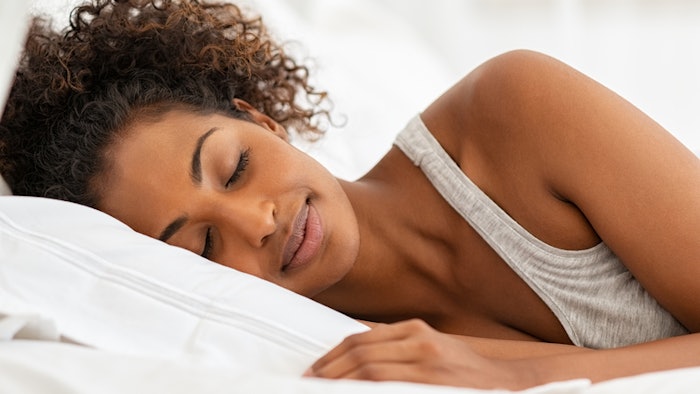
During Day Three of the Global Wellness Summit (GWS) 2020, a hybrid event that took place virtually and in person at The Breakers in Palm Beach, Florida, attendees learned a lot about sleep—one of the most important wellness trends coming to the forefront.
5 Steps for Sleeping Well
Dr. Michael Breus, aka "The Sleep Doctor," presented a keynote about how to sleep for peak performance, that is, how to get better quality sleep for better quality life . He explained that the average person needs 90 minutes to go through a full REM cycle, and they need about five of those cycles, which comes out to roughly 7.5 hours of sleep. He provided his five top tips for ensuring a good night's sleep:
- Pick one wakeup time, and stick to it.
- Stop caffeine at 2:00 p.m. to allow it to leave your system.
- Stop alcohol intake three hours before bed , as good hydration also factors into good sleep. (Plus, alcohol can interrupt sleep cycles.)
- Limit exercise four hours before bed, which allows your body to wind down.
- Get at least 15 minutes sunlight every day, ensuring that your circadian rhythm stays on track.
Related: Sleep Treatments Are Becoming a Popular Spa Offering
Dr. Breus also discussed the different levels of sleep, from light to REM, and what they do for the body, such as memory retention and mental restoration. Although there are different types of people, like those who thrive by waking up early to so-called night owls, everyone can come up with a schedule that works with their rhythms by paying attention to their caffeine intake, exercise and bedtime.
Sleep, Health and Hospitality
After Dr. Breus' talk came a keynote panel about sleep as the foundation for health and hospitality. The panelists were:
- Francisco Levine, chief business officer of Bryte
- Tammy Pahel, VP of spa and wellness at Carillon Miami
- Rebecca Robbins, PhD, sleep researcher and fellow at Brigham and Woman's Hospital, and Harvard Medical School
They discussed how crucial quality of sleep is when people travel, yet in the hotel environment sleep is overall very poor; unfortunately, guests tie that to their overall hotel experience. The reason hotels have historically overlooked sleep? It's not a Forbes standard.
Related: Study Shows People React Better to Stress on Full Night's Sleep
Luckily, this presents an opportunity for properties to differentiate by implementing a a sleep initiative or programming, according to the expert panel. Resorts can use new sleep-enhancing technologies, like circadian lighting, as well as focus on creating "sleep sanctuaries" within guestrooms, in which outside light and noise are contained.
The panel concluded by stressing the importance of investing in sleep: A good night's sleep is the No. 1 thing hotel guests are looking for, so improving it will improve the overall guest experience, which is great customer service and further positions managers as a leader in the field.







![[Expo Hall Excitement] New Location, Skin Inc. LIVE! Stage and More](https://img.wellspa360.com/files/base/allured/all/image/2023/08/AdobeStock_286488525.64de4ffad0598.png?auto=format%2Ccompress&fit=crop&h=191&q=70&rect=0%2C628%2C6000%2C3375&w=340)



